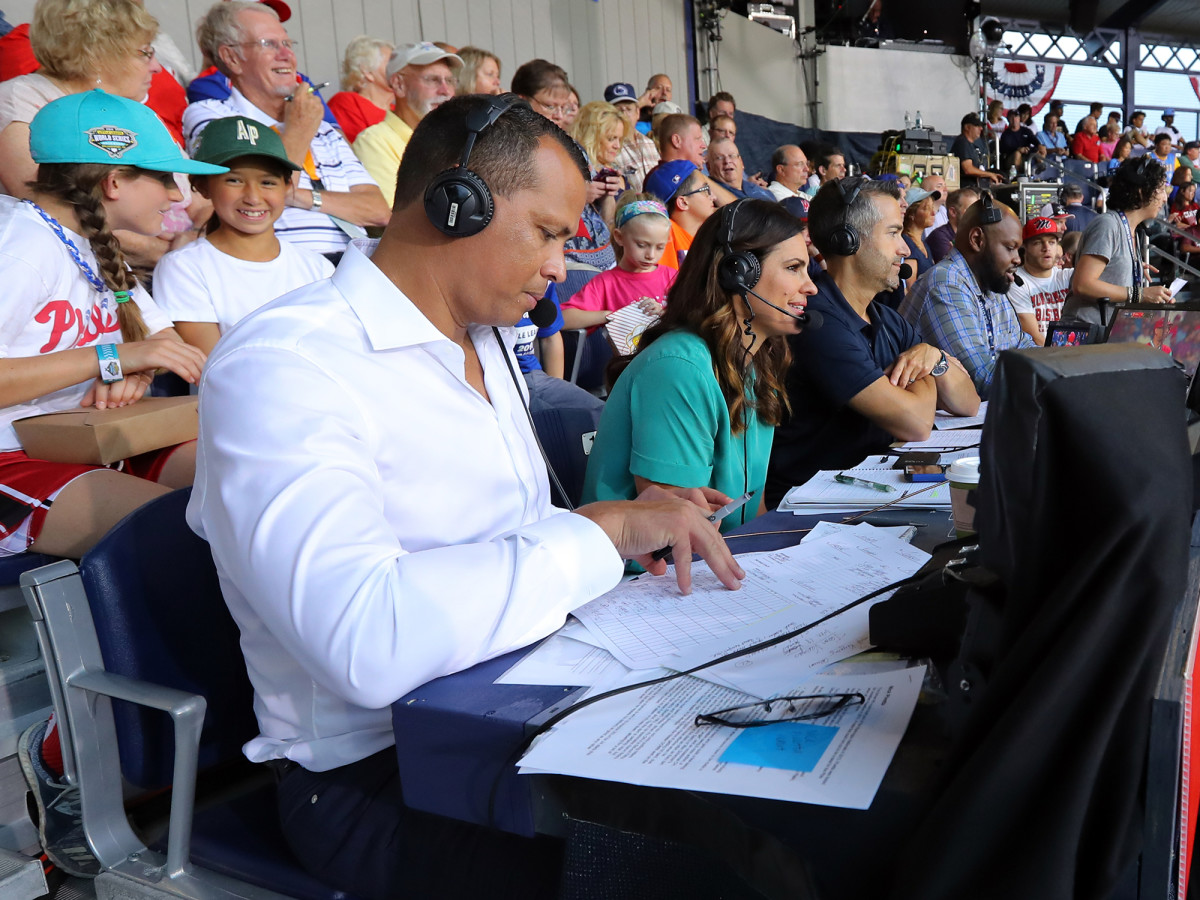'This Is Bigger Than Me': Jessica Mendoza Embraces Role as Trailblazer in MLB

On any given day of the season, 750 players show up to the ballpark to suit up for major league teams.
All of them, of course, are male. But one of baseball’s most fascinating developments is the growing role of women in the game, and Jessica Mendoza is helping lead the way.
“I won’t shy away from that,” Mendoza said. “I want to be a role model. Girls need to see it to believe.”
Mendoza is a former softball star, best known in baseball for her work with ESPN on the Sunday Night Baseball team. During the offseason, she became a baseball operations advisor with the Mets, reporting directly to general manager Brodie Van Wagenen. In her new role, Mendoza once again raised the standard for women in baseball.
“I’ve understood from the beginning that I would be representing a lot of girls and women,” said Mendoza. “There is nothing more I want to do than impact girls.”
Mendoza is a baseball pioneer. She became the first female broadcaster in the booth for ESPN’s College World Series coverage, the first female commentator for a Major League Baseball game on ESPN, and—you guessed it—the first female commentator in MLB postseason history.
“I want you to hear me, instead of simply writing me off because I’m a woman,” Mendoza, 37, said. “There is a big difference.”
Mendoza’s role with the Mets and her job at ESPN might seem like a conflict of interest, but others—like her broadcast partner, Alex Rodriguez, a special advisor for the Yankees (or David Ross and Al Leiter)—have been in similar situations, and no lengthy objections were ever presented when those men were hired in baseball roles beyond broadcasting. With the Mets, Mendoza will focus primarily on technological advancement as well as health and performance for the organization.
Women in baseball is not in its infancy stages, as MLB Senior Vice President Kim Ng has been blazing a trail for over two decades in the field. But Mendoza is unique because her on-air position with ESPN is so high profile.
Mendoza starred on the softball field for both Stanford University and the United States Olympic team. Yet despite her success on the diamond, there is a population of baseball fans still getting accustomed to the sound of a woman’s voice during baseball’s signature weekly broadcast.
“I want to be a voice for women, but I’ve also got two boys at home and my role is important for them, too,” Mendoza said. “Men need to hear a woman who is prepared and understanding.”
Mendoza’s most influential teachers in softball were all male coaches who grew up playing baseball. Her course of action is no different than theirs, only in reverse.
“John Kruk called the Women’s College World Series with me, and his background is not in softball,” Mendoza said. “But his insight and understanding were awesome. People loved him in the booth and no one questioned him, even though he didn’t play the sport. Why can’t we treat women the same way?”

Criticism, of course, extends far beyond gender, and any high-profile player or broadcaster is likely to be at the receiving end. Just ask Rodriguez.
“I understand being criticized at a really high level,” said Rodriguez, no stranger to criticism as both a player and broadcaster. “And when you’re a trailblazer like Jessica is, you’re going to get some heat.”
Self-doubt can cripple ability, no different in the batter’s box than it is in the broadcast booth. But Mendoza does not mind criticism, as long as people are genuinely listening to what she has to say.
“You don’t have to agree with what I said, but just don’t solely disagree because of who is saying it,” Mendoza said. “With Alex, because of his history, people just come at him. But are they listening to him or are they judging him because of what they think they know? And a lot of people are judging me just because of my gender.”
Says Rodriguez, “When I’m talking baseball with Jessica, I never think about whether I’m talking to a woman or to a guy. All I know is I’m speaking with a person who really understands baseball and loves the game.”
In both broadcasting and with the Mets, Mendoza said, players haven't given much thought to her gender.
“I can go up to the guys and ask about approach, analytics, and hitting approach,” said Mendoza. “That comfort is there with the players, and I don’t think they see me as a female broadcaster. They just see me as Jess.”
Mendoza faces a challenging terrain battling for equal rights for women in professional baseball. But she's grateful to use her platform to encourage women and girls that they can also succeed in this field.
“We need to know that we are good,” Mendoza said. “Doubt is what I see with a lot of women, we doubt ourselves. Whether it’s because we think we’re too fat or ugly or not smart enough, our gender puts ourselves down. But we need to own exactly who we are.”
For Mendoza, the obligation to champion women in baseball isn't a burden.
“This is bigger than me,” she said. “That adds even more pressure, but I understand that if I fail, I’m failing for a lot more people than just me. So I’ll always put pressure on myself to go above and beyond.”
